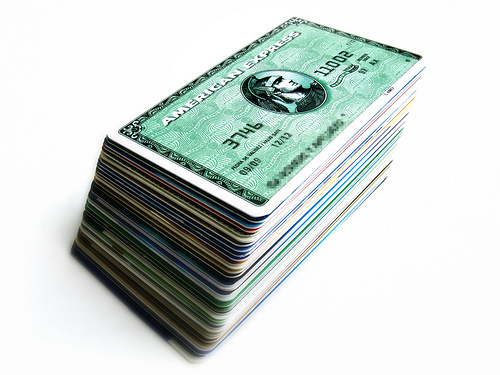Two related items from ICLE:
As regular readers know, interchange fees are a frequent topic of conversation around the blog. Taking the conversation from the ether to the real world, ICLE has funded a white paper and is putting on a conference next week on the topic. The conference, in fact, grows out of the successful online symposium we held here at Truth on the Market a few months ago. An e-book/pdf version of the posts and comments from that sympoisum can be downloaded here, by the way. A few of the participants from the symposium will be participating in the conference, as well (more below).
The paper, by Todd Zywicki (ICLE Senior Fellow and Foundation Professor of Law at George Mason University School of Law), is entitled, “The Economics of Payment Card Interchange Fees and the Limits of Regulation.”
The timing of the paper’s release couldn’t be more fortuitous, as Congress reconvenes next week and begins to confer over the language of the Durbin Amendment to the “Restoring American Financial Stability Act of 2010.” The Durbin Amendment would impose price controls on debit card interchange fees and would restrict the use by credit and debit card networks of certain network rules. As Todd described it recently in a Washington Times op-ed:
Late in the Senate’s proceedings on the financial regulatory reform bill, the Senate adopted – with no hearings and minimal debate – a controversial provision proposed by Sen. Richard Durbin, Illinois Democrat, that imposes price controls on interchange fees for debit and prepaid cards. The amendment also allows merchants to override several rules of payment card networks that currently protect consumers from abusive practicesby merchants. While big-box merchants and convenience stores are declaring this a victory against the financial services industry, if the amendment survives in conference committee, consumers and small banks will be the real losers.
The paper, although focused most heavily on credit card interchange fees (and the attendant complexity of credit card markets more generally) has important implications for the debate over the Durbin Amendment. As the paper’s abstract explains:
Fresh off of the most substantial national liquidity crisis of the last generation and the enactment of sweeping credit card regulation in the form of the Credit CARD Act, Congress continues to deliberate, with a continuing drumbeat of support from lobbyists, a set of new regulations for credit card companies. These proposals, offered in the name of consumer protection, seek to constrain the setting of “interchange fees”—transaction charges integral to payment card systems—through a range of proposed political interventions. This article identifies both the theoretical and actual failings of such regulation. Payment cards are a secure, inexpensive, welfare-increasing payment mechanism largely unlike any other in history. Rather than increasing consumer welfare in any meaningful sense, interchange fee legislation represents an attempt by some merchants to shift costs away from their businesses and onto card issuing banks and cardholders. In particular, bank-issued credit cards offer a dramatic improvement in the efficiency and availability of consumer credit by shifting credit risk from merchants onto banks in exchange for the cost of the interchange fee—currently averaging less than 2% of purchase value. Merchants’ efforts to cabin these fees would harm not only consumers but also the merchants themselves as commerce would depend more heavily on less-efficient paper-based payment systems. The consequence of interchange fee legislation, as Australia’s experiment with such regulation demonstrates, would be reduced access to credit, higher interest rates for consumers, and the return of the much-loathed annual fee for credit cards. Interchange fee regulation threatens to constrain credit for consumers and small businesses as the American economy begins to convalesce from a serious “credit crunch,” and should be accordingly rejected.
The paper presents a detailed analysis of the economics of payment card networks and the implications for the various participants in those networks–from consumers to banks to merchants, among others–of political intervention into the setting of the interchange fee.
Please click on the link to download the paper:
Todd J. Zywicki, “The Economics of Payment Card Interchange Fees and the Limits of Regulation.”

Coinciding with the release of the paper, ICLE, in conjunction with George Mason University’s Mercatus Center, will be hosting a conference in Washington, DC, next week on the interchange fee debate. For more information on the conference and to register, please click here. The conference, to be held on June 9th from 8:30 am to 1:00 pm at the Willard InterContinental Hotel, will cover both the politics and regulation of interchange fees, as well as the underlying economics of card networks and the place of the interchange fee in those networks.
Conference Speakers include:
Thomas Brown, O’Melveny & Myers LLP
Sujit Chakravorti, Federal Reserve Bank of Chicago
Thomas Durkin, Former Senior Economist, Federal Reserve Board
Mike Konczal, Roosevelt Institute
Geoffrey Manne, International Center for Law and Economics
Megan McArdle, Atlantic Monthly
Tim Muris, former Chairman, Federal Trade Commission
Felix Salmon, Reuters
Steven Semeraro, Thomas Jefferson University
Fred Smith, Competitive Enterprise Institute
Joshua Wright, George Mason University Law School and ICLE
Todd Zywicki, George Mason University Law School, Mercatus and ICLE
We hope to see you there




